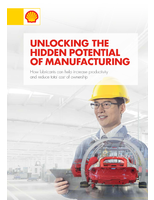Risk of Injury Is Reduced by TMHE's BT Reflex Forklifts
Share:
Toyota Material Handling Europe (TMHE)'s range of BT Reflex forklifts has been proven to reduce levels of exertion and therefore the risk of injury during material handling operations.
Injuries can be sustained in any workplace, but statistics show that forklift operators are particularly susceptible to neck, shoulder and lower back injuries, which can develop into prolonged afflictions. The BT Reflex series features a unique tilting cab system, proven to reduce the risk of these grievances.
Injuries sustained whilst operating forklifts often occur when lifting goods to great heights, as the mast prevents the forklift operators from seeing the tips of the forks when they are elevated. This requires the drivers to move their heads in order to gain an unobstructed view. The cabs of the BT Reflex models automatically tilt back when the fork tips are raised, providing the drivers with a much clearer view and reducing the need for neck extension.
This was proven in a study conducted by The Prodergo Project, where scientists were able to demonstrate that the tilting cab system reduces neck extension by 20%. This study was conducted when lifting goods to heights of four and six metres; greater heights would show even better results, given the prolonged duration of neck extension usually required.
Perhaps of more significance is the drivers' own perception of comfort, with operators reporting a 52% reduction in exertion when using the tilting cab.
It follows that productivity amongst forklift operators will be increased with drivers experiencing greater comfort during their operations. The risk of injury will be reduced along with healthcare issues and the cost of sick days and compensation.
TMHE is proud to demonstrate its commitment to safety in the material handling process.



